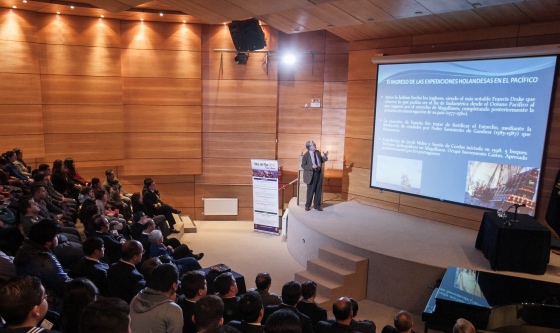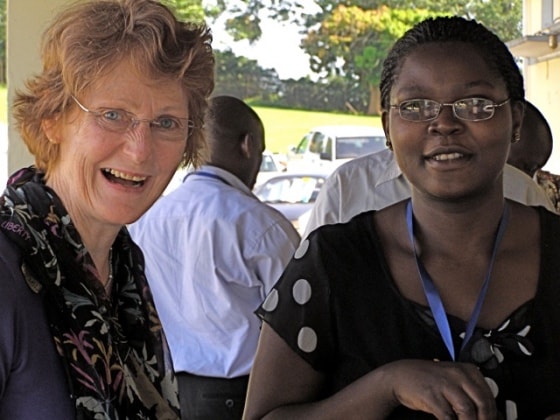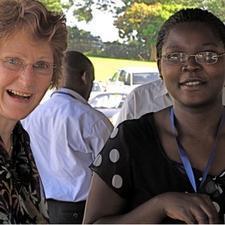The benefits of mentoring are often thought to be for young people only. At VeryConnect we know from collaborating with a range of mentoring organisations that reality is different. Mentoring can help people in all walks of life. Formal mentoring programmes are gaining popularity in higher education and we wanted to explore why. Mentoring for PhD students was a natural starting point for our team. From the start we expected mentoring at this level to support talented individuals in their unique work. We found that it has more to offer. Speaking with experts in the field, we now know that mentoring impacts PhD students’ lives beyond their thesis.

Mentoring can have a positive impact on PhD students’ lives and careers.
Mentoring PhD students boosts international development
Our first conversation was with Professor David Dunne, Director at Cambridge-Africa, University of Cambridge. David initiated Cambridge-Africa after having met many brilliant people in Sub-Saharan Africa who did not get the chance to develop their academic skills. The idea was to contribute with what the University of Cambridge does the best: world leading research. David says: “To train people to world class research excellence they need to be to trained by world class researchers.”
The programme has a ‘think global, act local’ approach, and encourages young African researchers to work on African problems, in Africa. Talented PhD students get matched with a suitable mentor at the University of Cambridge, and are invited to spend up to one year in their mentor’s research group on campus. When travelling back the students bring a wealth of knowledge to their departments, institutions, and communities. The aim is that African universities will increasingly provide sustainable solutions to the problems on the continent. David comments: “In the long term we hope that these individuals will be our competitors”.

Professor Ashley Moffett, University of Cambridge, with her mentee Dr Annettee Nakimuli in Uganda. Prof Moffett is a leading expert on the immune-genetics of pre-eclampsia, a major cause killer of pregnant women worldwide. Having gained her PhD from Makerere University, with co-mentorship from Prof Moffett, Dr Nakimuli now leads major research efforts in Kampala, Uganda. Image courtesy of Cambridge-Africa.
Mentoring PhD students improves academic institutions
An academic institution is only as successful as its staff. It’s in the interest of the institution to provide a culture where prospective researchers can grow. By supporting PhD students the capacity of institutions and departments will develop. We spoke with Suzanne Doyle-Morris, Founder and CEO at inclusIQ, about how academic institutions can improve mentoring culture for their PhD students. Suzanne holds a PhD in Educational Research from the University of Cambridge, and is the author of Beyond the Boys’ Club.
Suzanne gives three key pieces of advice for academic institutions wanting to improve mentoring for their PhD students.
- Institutions need to set up a formal programme to ensure that there is wide access for students, and that mentor-mentee matches are not influenced by unconscious bias from any party.
- Mentees need to be trained in how to make the most of the relationship by becoming an asset to the mentor. If mentees keep their reputation clean and make their mentors look good to peers and superiors the relationship will last longer.
- Mentors need to be trained in how to listen. Institutions can’t just make a match and hope for magical things to happen, training is vital.

Institutions benefit from mentoring for PhD students. Image of the University of Glasgow.
Mentoring PhD students helps individuals
Mentoring has benefits to both mentors and mentees. Suzanne confirms that mentors get a reminder of how far they have come, gain new perspectives, and benefit by being associated with someone who is young and going places.
Jumai Abioye gave us her PhD student perspective on the benefits of mentoring. Jumai is studying at the University of Glasgow, and her PhD is focusing on finding a cure for HIV. She is also an entrepreneur working to create educational reform in Africa. Jumai has never had a mentor but she thinks it would be invaluable both to her career as an academic and as an entrepreneur. “Most young researchers don’t really know what to do. If you don’t actively seek people out you don’t know what’s on the other side of the PhD, and you just blindly apply for Postdocs. There are a lot of blogs online giving advice but it’s not the same”.
Jumai believes that a rewarding mentoring programme can be put in place if universities realise that not all PhD students are the same. Not everyone wants to stay in academia. If universities spend time understanding what their students want they can reach out to the right alumni for talks, networking, and mentoring. Jumai describes the current situation: “There’s no specific framework in place. It’s really random who you meet as a mentor. Everything boils down to if you’re driven enough.”
Does your organisation want to implement a mentoring scheme? See how our software can help you.
The future of mentoring for PhD students
It seems like the benefits of mentoring PhD students are becoming increasingly apparent. Cambridge-Africa is gaining significant interest from prominent universities and funders. David expects other institutions to pick up on their model soon. He concludes: “If the top universities across the world were all committed to supporting their colleagues in Sub-Saharan Africa that would have real impact”.
Some universities might instead draw inspiration from Cambridge-Africa and similar schemes to launch an internal mentoring programme for PhDs. We believe that more people will soon pick up on the value that a well thought through and implemented mentoring programme can bring.
By Anna Bjorkman, Marketing Manager at VeryConnect
Many thanks to David Dunne, Suzanne Doyle-Morris, and Jumai Abioye for their invaluable contributions to this article.
Our next article on mentoring will focus on undergraduate students. Follow VeryConnect on LinkedIn to read it first.

Get in touch today to learn how we can help you to launch your own mentoring programme.

